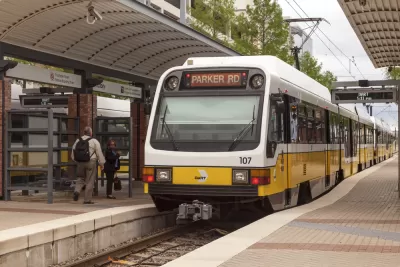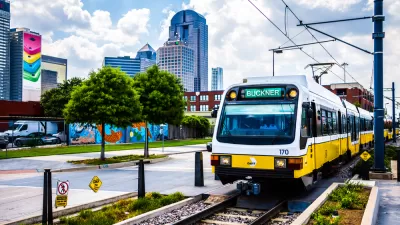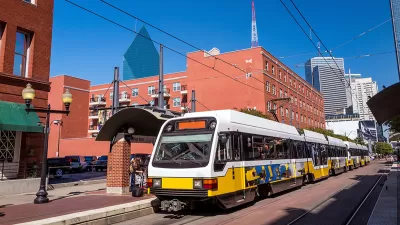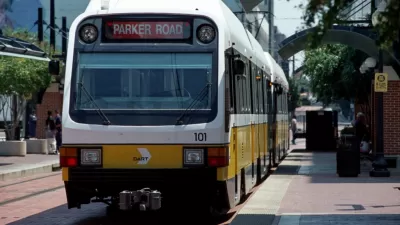An advocate for the Cotton Belt line to connect Dallas with suburbs to the north is tired of the project taking a backseat to the transit interests of the urban core.

Ron Whitehead provides an opinion piece for The Dallas Morning News arguing for a regional focus to transit planning in the Dallas area. Whitehead reacts to the results of the traditional "hub-and-spoke" approach to regional transit, pitched some 35 years ago in Dallas:
Building out from the hub would mean all of the money for light rail for the first 20 years of DART's existence would be spent entirely within Dallas. The suburbs would get connectivity through bus service until the spokes could be built out to them in the future. That was what happened for 20 years and we continued to pay our part and believe in the concept of regional transit.
Now, however, plans for a D2 downtown subway line have been played against a proposed Cotton Belt connection to the suburbs. According to Whitehead, the debate has been "disheartening to many of us who have been here from the beginning." Although the Dallas Area Rapid Transit (DART) board recommended in October that both projects move forward, Whitehead asks that the readers not be fooled: "the goal among some people in Dallas is to kill the Cotton Belt so that it won't go through North Dallas."
As a response to what he describes as the perpetual neglect of suburban interest in the regional transit planning, Whitehead calls for suburban interests to be selected to fill vacancies on the DART board.
FULL STORY: Dallas must show commitment to regional transportation with DART appointments

Alabama: Trump Terminates Settlements for Black Communities Harmed By Raw Sewage
Trump deemed the landmark civil rights agreement “illegal DEI and environmental justice policy.”

Study: Maui’s Plan to Convert Vacation Rentals to Long-Term Housing Could Cause Nearly $1 Billion Economic Loss
The plan would reduce visitor accommodation by 25% resulting in 1,900 jobs lost.

Why Should We Subsidize Public Transportation?
Many public transit agencies face financial stress due to rising costs, declining fare revenue, and declining subsidies. Transit advocates must provide a strong business case for increasing public transit funding.

Paris Bike Boom Leads to Steep Drop in Air Pollution
The French city’s air quality has improved dramatically in the past 20 years, coinciding with a growth in cycling.

Why Housing Costs More to Build in California Than in Texas
Hard costs like labor and materials combined with ‘soft’ costs such as permitting make building in the San Francisco Bay Area almost three times as costly as in Texas cities.

San Diego County Sees a Rise in Urban Coyotes
San Diego County experiences a rise in urban coyotes, as sightings become prevalent throughout its urban neighbourhoods and surrounding areas.
Urban Design for Planners 1: Software Tools
This six-course series explores essential urban design concepts using open source software and equips planners with the tools they need to participate fully in the urban design process.
Planning for Universal Design
Learn the tools for implementing Universal Design in planning regulations.
Smith Gee Studio
Alamo Area Metropolitan Planning Organization
City of Santa Clarita
Institute for Housing and Urban Development Studies (IHS)
City of Grandview
Harvard GSD Executive Education
Toledo-Lucas County Plan Commissions
Salt Lake City
NYU Wagner Graduate School of Public Service





























